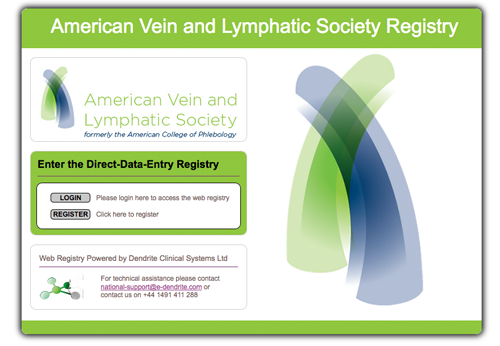 Dendrite Clinical Systems and The American Vein and Lymphatic Society (formerly the American College of Phlebology) are delighted to announce the launch of the American Vein and Lymphatic Society Registry - a ‘real-time’ clinical database that will identify practice patterns for venous and lymphatic disease diagnosis and treatment across North America.
Dendrite Clinical Systems and The American Vein and Lymphatic Society (formerly the American College of Phlebology) are delighted to announce the launch of the American Vein and Lymphatic Society Registry - a ‘real-time’ clinical database that will identify practice patterns for venous and lymphatic disease diagnosis and treatment across North America.
The aim of the registry is to analyse the aggregate data and produce an annual publication that will outline important demographic features, risk factors, diagnostic characteristics, disease patterns, and treatment outcomes of venous and lymphatic disease within North America.
It is hoped that the Registry will assist the AVLS in developing standards of care and guideline documents for the treatment of various venous and lymphatic disease by improving the standards of medical practitioners, the quality of patient care and patient management.
The Registry will allow physicians to enter the demographics, risk factors, clinical features, management details and follow-up of all major venous and lymphatic diseases. Outcome reports (e.g. risk-factor distribution, indications, patency rates, and complication rates) will be available in real time and physicians will have the ability to compare them with the aggregated outcomes of all entries in the database. The Registry can be programmed to generate lists for pending follow-ups, letters to patients, and reminder emails to physicians.
The Registry is web-based and allows the individual clinician to enter patient information into the database from the hospital, an office-based practice, or even from home. Clinicians can add as many cases as they wish and where possible they will be encouraged to put on retrospective data (if available).
“We are thrilled to be part of this exciting project. The registry is the largest database of its kind specifically designed for venous and lymphatic disease and will be of tremendous educational value to the AVLS, its members and ultimately, patients,” said Dr Peter Walton, Managing Director of Dendrite Clinical Systems. “The Registry represents an important milestone for the company and reflects our expanding database portfolio.”
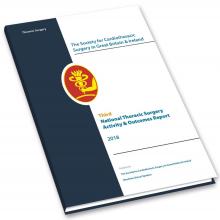 Dendrite Clinical Systems and the Society for Cardiothoracic surgery (SCTS) have published a new report that demonstrates importance collecting and analysing data from thoracic surgery. The report states that a large increase in thoracoscopic (VATS) resections is responsible for most of the recent increase in lung cancer surgery, rising from 749 cases in 2010-2011 to 2,753 in 2014-2015, an increase of more than 3.5 times.
Dendrite Clinical Systems and the Society for Cardiothoracic surgery (SCTS) have published a new report that demonstrates importance collecting and analysing data from thoracic surgery. The report states that a large increase in thoracoscopic (VATS) resections is responsible for most of the recent increase in lung cancer surgery, rising from 749 cases in 2010-2011 to 2,753 in 2014-2015, an increase of more than 3.5 times.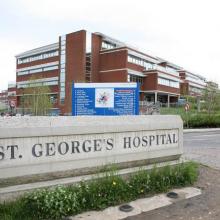 Dendrite Clinical Systems is to install its Intellect System to track outcomes of cardiothoracic surgery at St George’s Hospital, Tooting, London, UK. The company’s data capture software currently supports approximately 85% of cardiac units in the UK.
Dendrite Clinical Systems is to install its Intellect System to track outcomes of cardiothoracic surgery at St George’s Hospital, Tooting, London, UK. The company’s data capture software currently supports approximately 85% of cardiac units in the UK. 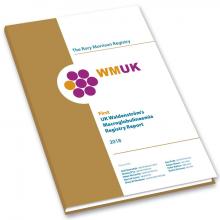 Dendrite Clinical Systems and Waldenström’s Macroglobulinaemia United Kingdom Charity have published the First UK Waldenström’s Macroglobulinaemia Registry Report 2018 – the first report of its kind in the world.
Dendrite Clinical Systems and Waldenström’s Macroglobulinaemia United Kingdom Charity have published the First UK Waldenström’s Macroglobulinaemia Registry Report 2018 – the first report of its kind in the world. 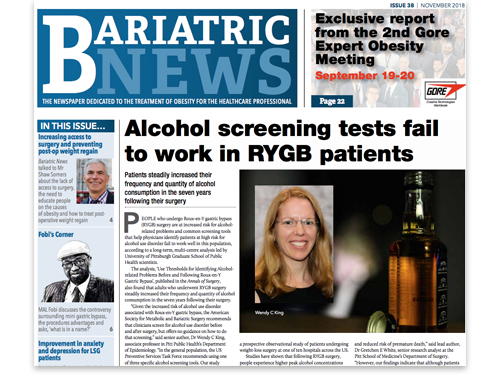 Dendrite Clinical Systems, the publisher of Bariatric News, is pleased to announce issue 38 of the newspaper is now available to view/download. The newspaper reports on research, technology, events and policy in the bariatric specialty, the latest clinical studies, policy changes and product news, the latest meetings and events, interviews prominent bariatric experts, and host debates between specialists on controversial topics.
Dendrite Clinical Systems, the publisher of Bariatric News, is pleased to announce issue 38 of the newspaper is now available to view/download. The newspaper reports on research, technology, events and policy in the bariatric specialty, the latest clinical studies, policy changes and product news, the latest meetings and events, interviews prominent bariatric experts, and host debates between specialists on controversial topics. Dendrite Clinical Systems and the British Society for Allergy & Clinical Immunology (BSACI) have launched the British Registry for Immunotherapy (BRIT), a web-based patient registry that records immunotherapy treatment of patients under the care of BSACI consultants practicing in the UK.
Dendrite Clinical Systems and the British Society for Allergy & Clinical Immunology (BSACI) have launched the British Registry for Immunotherapy (BRIT), a web-based patient registry that records immunotherapy treatment of patients under the care of BSACI consultants practicing in the UK.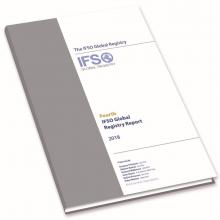 Dendrite Clinical Systems, under the auspices of the International Federation for the Surgery of Obesity and Metabolic Disorders (IFSO), has published the Fourth IFSO Global Registry Report (2018) at the federation’s XXIII World Congress in Dubai, UAE. The latest report features data from more than 50 countries on over 394,000 operations including baseline obesity-related disease, operation types, operative outcomes and disease status after bariatric/metabolic surgery.
Dendrite Clinical Systems, under the auspices of the International Federation for the Surgery of Obesity and Metabolic Disorders (IFSO), has published the Fourth IFSO Global Registry Report (2018) at the federation’s XXIII World Congress in Dubai, UAE. The latest report features data from more than 50 countries on over 394,000 operations including baseline obesity-related disease, operation types, operative outcomes and disease status after bariatric/metabolic surgery.


